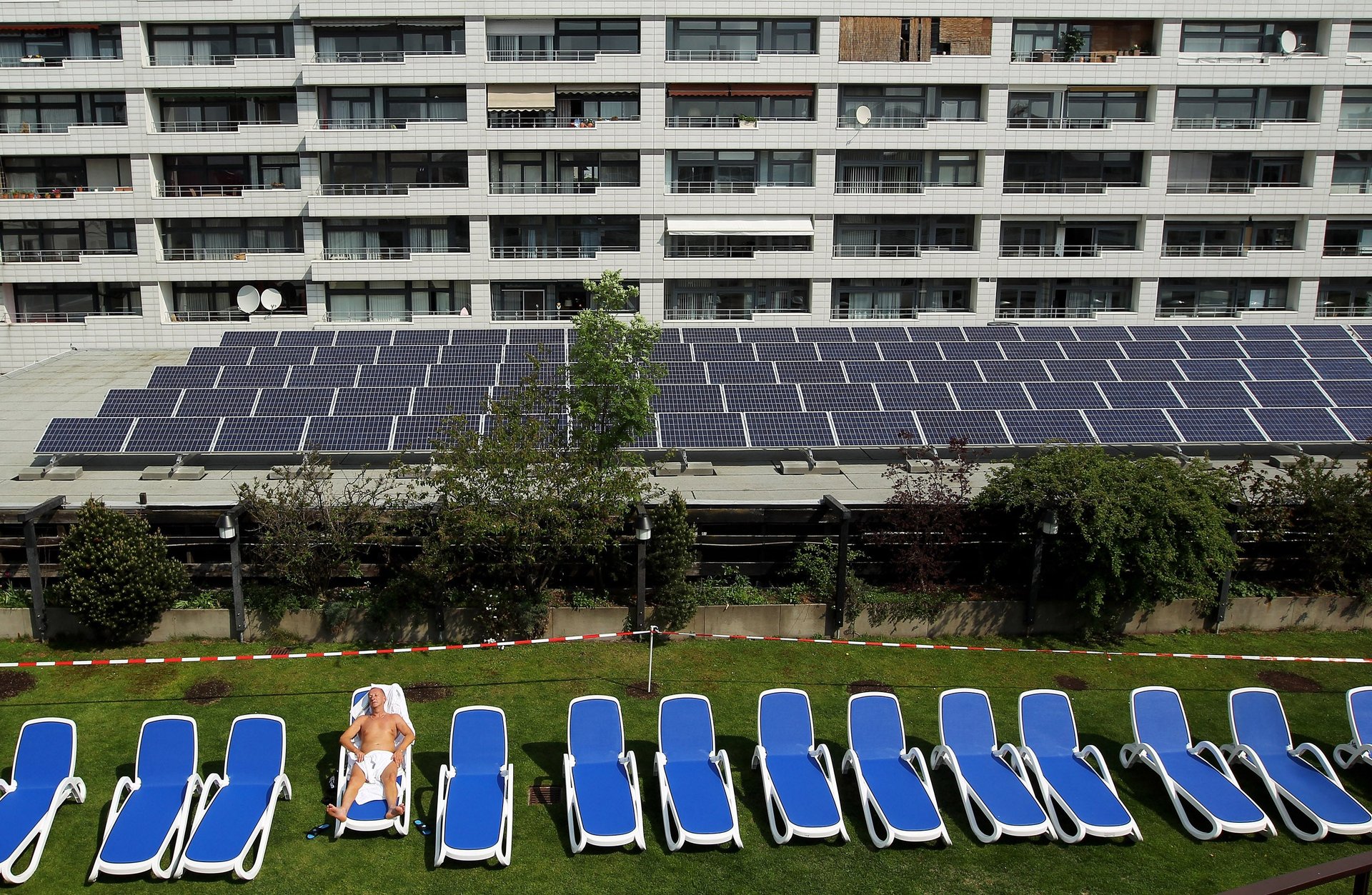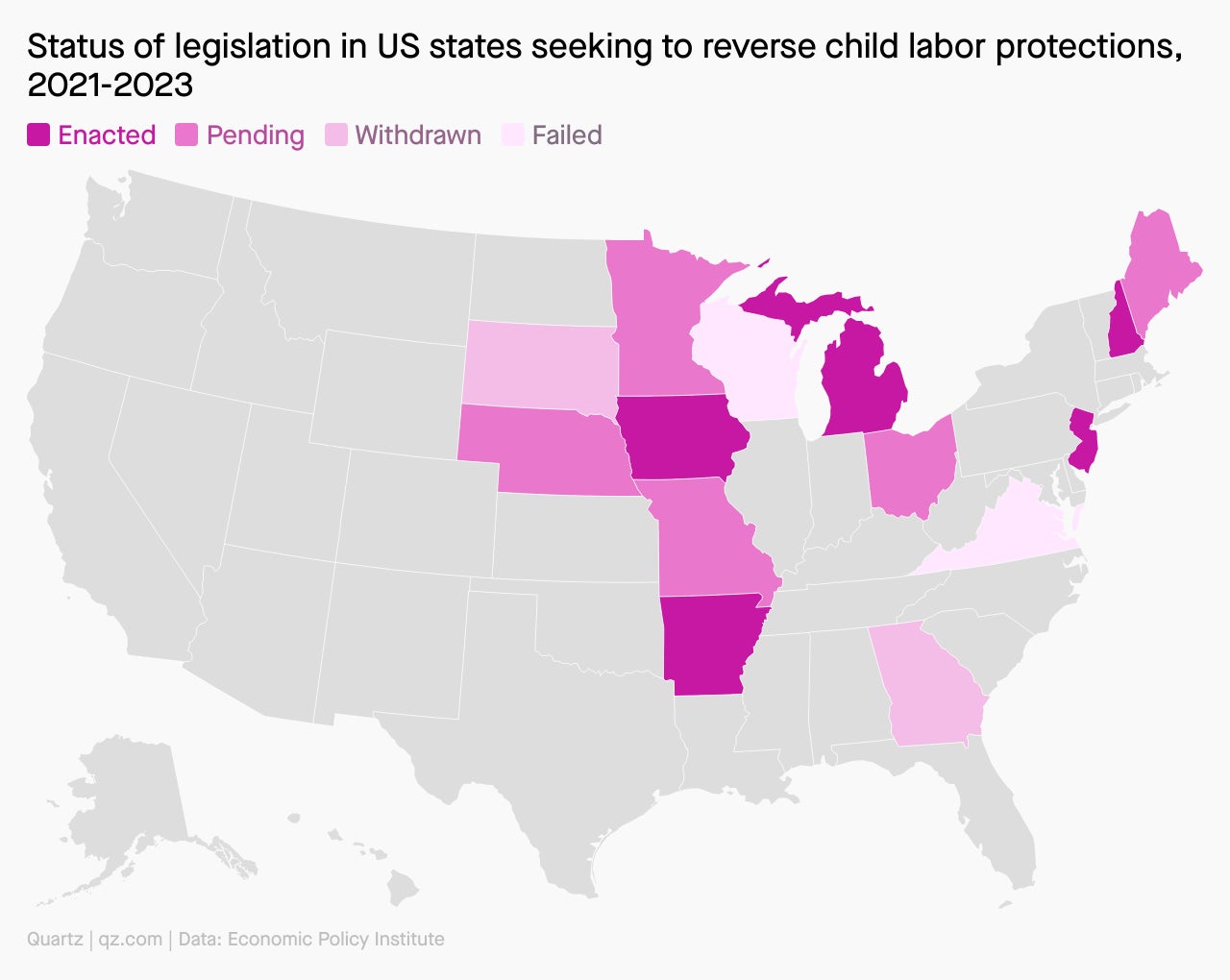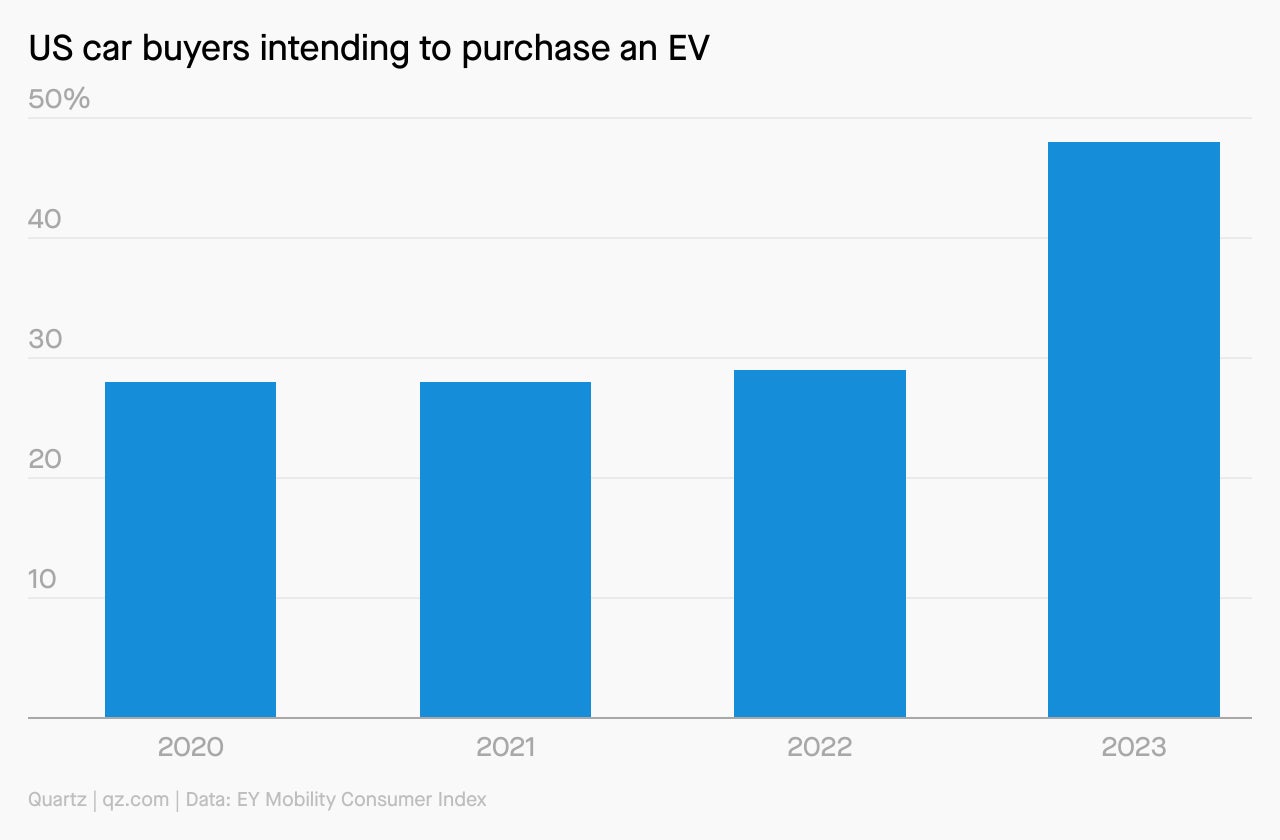🌍 Europe’s sunny day
Plus: To Whom AI Concerns

Good morning, Quartz readers!
Suggested Reading
Here’s what you need to know
A sunny day in Europe pushed power prices below zero. It’s becoming an increasingly common occurrence at times when solar panels are most productive but demand for energy is low.
Related Content
The UK’s top universities reached an agreement on how to deal with generative AI. The technology can be seen as an “opportunity rather than a threat” to academic integrity.
The UN nuclear agency okayed the release of treated Fukushima wastewater into the Pacific Ocean. Neighboring countries and fishing communities are not happy with the plans.
Swifties flocked to a Singaporean bank. UOB saw a 45% surge in card applications after it was announced that cardholders will have privileged access to Taylor Swift’s concert tickets.
Meta’s Twitter rival landed in the app stores. Threads is due to launch July 6, but it’s already attracting critics. Meanwhile, Twitter now wants you to pay to use TweetDeck.
Child labor laws are under attack in the US
More than a dozen US states have sought to weaken child labor protections over the past two years. In one of the most sweeping roll backs to-date, an Iowa law now permits adolescents to serve alcohol, work in meatpacking plants, and even on demolition projects. Quartz writer Julia Malleck delves into the corporate and political interests behind the trend.

To Whom AI May Concern
There may be a robot between you and your next job, and it could be biased. But if you’re a New Yorker, you’re in luck. A law going into effect today (July 5) will let you know if AI is doing any of the adjudicating behind your job application. Be warned, AI may be automatically:
🤖 Screening your resume
🔎 Scraping your social media to create a personality profile
💬 Chatting with you online to ask pre-interview questions
Quartz’s Gabriela Riccardi gives the lowdown on NYC’s new policy, and what information you can request to best equip yourself against the bots.
One big number: 48%
Share of US car buyers who plan to buy an electric vehicle (EV) in the next two years
The 2023 share of Americans intending to purchase an EV represents a 19% jump from last year. The US spike in interest is the highest increase globally, but the country ranks seventh for consumer EV readiness. China, Norway, and Sweden are the top three nations on that count. Clarisa Diaz looks at what’s worrying prospective EV buyers.
Surprising discoveries
Sandwich assembly can illustrate how planets form. Some astronomers think smaller planets result from dust pressured by larger neighbors, like fillings between slices of bread.
Klotho could have influence over our fates. The protein named after a mythological spinner of life threads produced anti-aging results in old rhesus macaques.
Bilingual speakers remember things more accurately in their second language. The brain appears more alert to misinformation when set on non-native tongue mode.
That twinkle in your eye could be reconstructed with AI. Watch where you look when on camera—reflections in your eye can now be rendered into 3D images.
A new octopus species was found 2,800 meters deep in the sea. It breeds in a nursery first discovered, and dismissed, a decade ago.
Our best wishes for a productive day. Send any news, comments, planetary sandwiches, and baby octopuses to [email protected]. Reader support makes Quartz available to all—become a member. Today’s Daily Brief was brought to you by Sofia Lotto Persio and Julia Malleck.
